February 16, 2017 report
New fossil discovery suggests sea life bounced back after the 'Great Dying' faster than thought
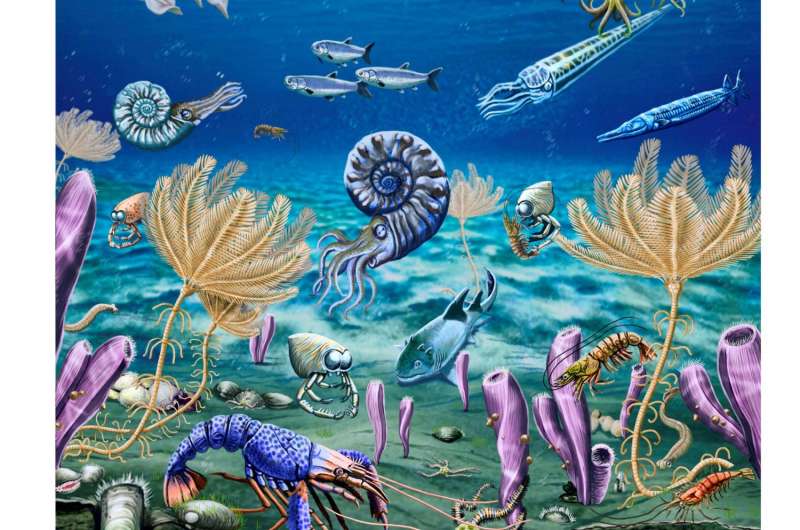
(Phys.org)—An international team of researchers has found a trove of marine fossils at a North American site that offers evidence of life bouncing back faster than thought after the most devastating mass extinction in Earth's history. In their paper published in the journal Science Advances, the team describes the wide assortment of fossils they found and what they believe the discovery will contribute to understanding the evolutionary history of our planet.
The researchers were studying rocks unearthed from a site near the town of Paris, Idaho, where a wide variety of fossils dating back approximately 250 million years have been found—from a time just 1.3 million years after what is known as the 'Great Dying', the end of the Permian Period when approximately 96 percent of marine species went extinct along with 70 percent of all terrestrial vertebrates. Until this discovery, it was believed that life on Earth took many millions of years to recover from the 'Great Dying'. Now, it appears that it happened much faster than anyone thought.
To date, the researchers have identified 20 Metazoan orders (which include approximately 30 species) that lived during the early years of the Triassic Period. Fossils found included top predators such as sharks, primary producers and those typically found at the bottom of the food chain. The team has identified creatures that resembled squid, some with long shells; bony fish and other creatures that looked like sponges and starfish, and some other creatures that do not resemble anything alive today.
The researchers believe that the fossil find shows life under the sea bounced back in ways that were totally unexpected—and the large diversity suggests it happened rapidly and that the Early Triassic was much more complex than thought. It is not a geologic picture of devastation. The team reports that they also found a sponge fossil representing a species believed to have gone extinct 200 million years earlier and a type of squid that came about 50 million years earlier than previously known. They also found a fossil that appeared to come from a marine reptile that resembled the modern dolphin.
-
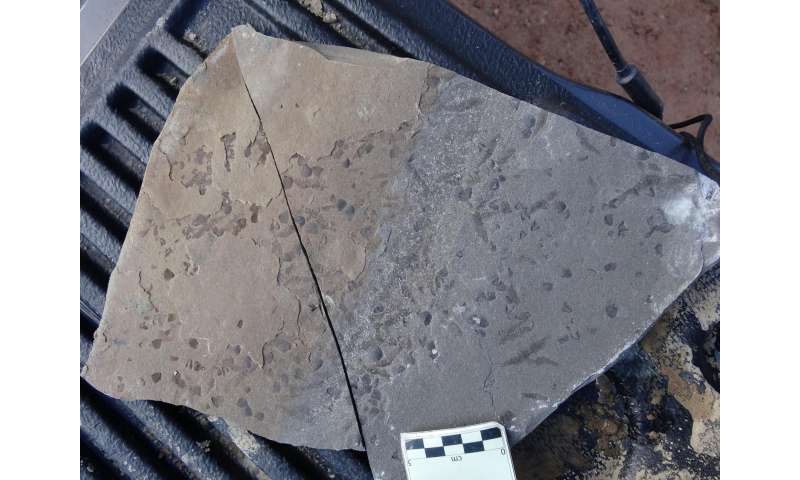
View of a sampled slab from the Paris Biota showing abundant fish scales and shrimp. Credit: Arnaud Brayard -
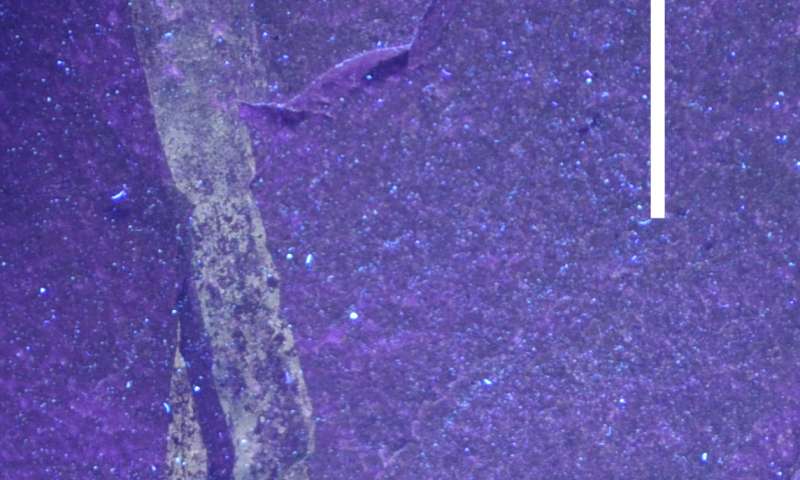
Remarkable group of sponge fossils from the Paris Biota under UV light. Scale bar lenght: 5 mm. Credit: Arnaud Brayard -
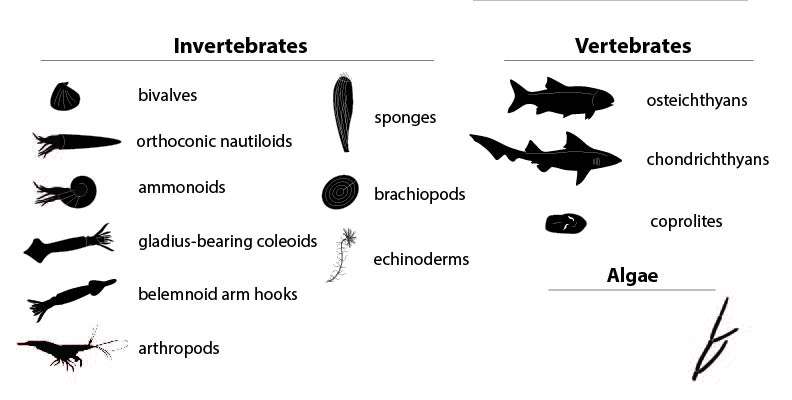
The Paris Biota illustrates the oldest occurrence of derived characters in several clades and it shows that at least some Early Triassic marine communities include ancient lineages in the lowest trophic levels together with newly-evolved groups occupying higher trophic levels. Credit: Carla Schaffer/ AAAS -
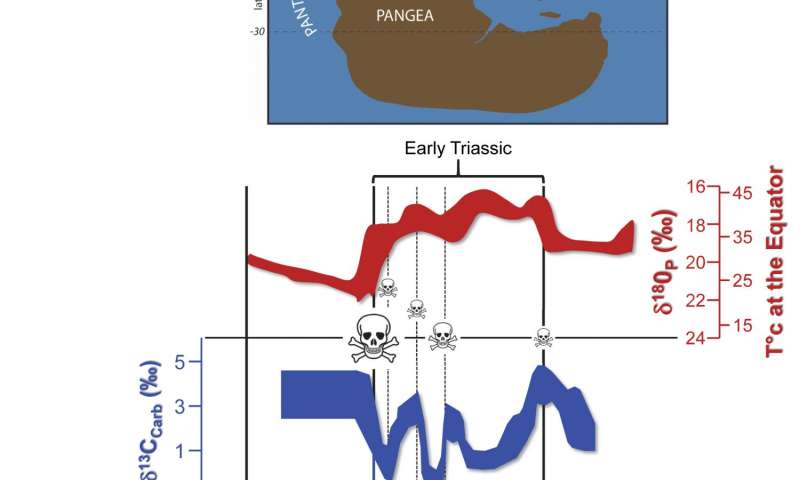
A graphic detailing how the Early Triassic was an epoch that recorded major extinctions and geochemical perturbations. Credit: Arnaud Brayard & Gilles Escarguel
Journal information: Science Advances
© 2017 Phys.org





















